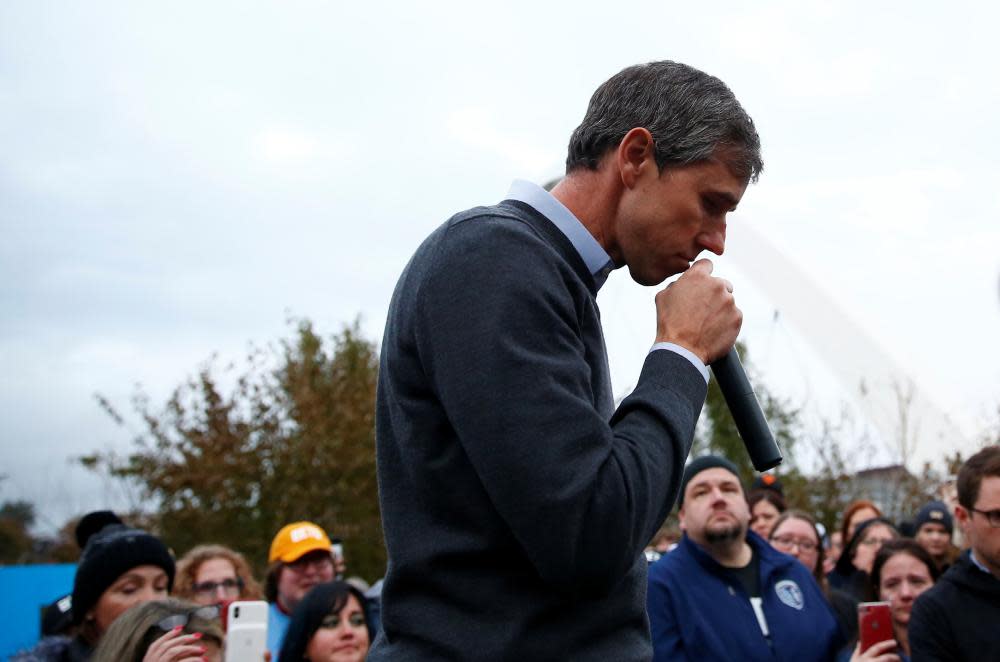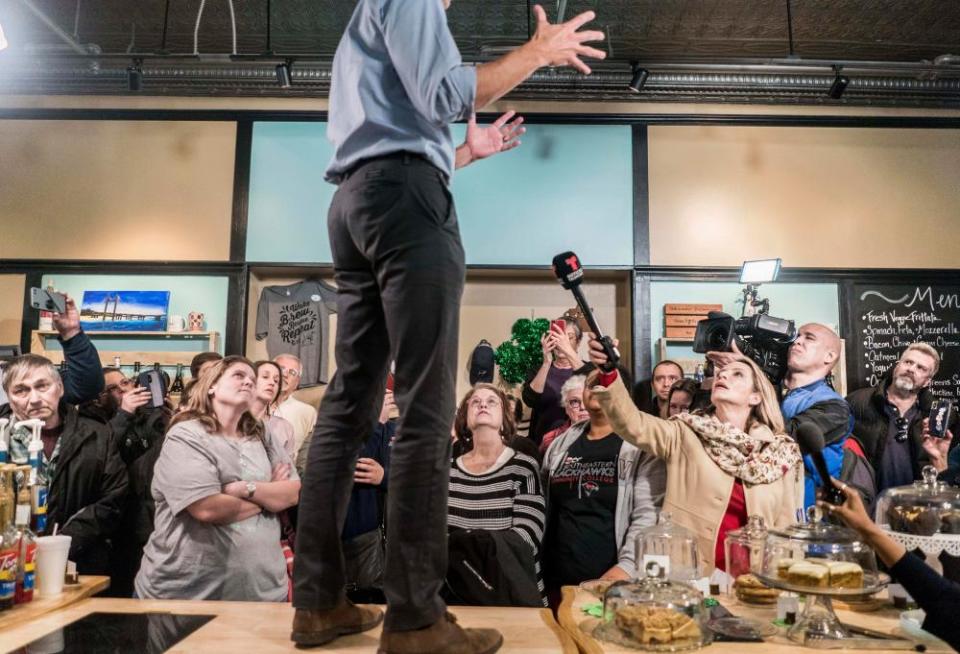The rise and fall of Beto O'Rourke: how the Democratic star's campaign faded

Donald Trump is quick to taunt the Democratic candidates for president as they fall. “Zero per cent Tim Ryan” got the treatment last week when he quit the race. Beto O’Rourke, whose campaign ended with a whimper on Friday night, was soon mocked by the US president.
“Oh no,” Trump wrote, “Beto just dropped out of race for President despite him saying he was ‘born for this’. I don’t think so!”
Related: Beto O'Rourke withdraws from Democratic race to face Trump
With his usual blunt branding ability, Trump had zeroed in on a Vanity Fair interview that O’Rourke gave on the eve of entering the race – and from which he never quite recovered.
“I want to be in it,” the former Texas congressman told the magazine in March. “Man, I’m just born to be in it, and want to do everything I humanly can for this country at this moment.”
With a shoot by the celebrity photographer Annie Leibovitz, the Vanity Fair spread gave many the impression of a white male vanity project. And O’Rourke – who later described the cover and his choice of words as a mistake – did little to dispel that during a campaign in which he livestreamed himself having a haircut.
At 47 and with a young family, Robert Francis “Beto” O’Rourke had been billed as a new Robert Kennedy, a fresh and dynamic figure of hope who could work across the aisle. He was urged to run for president by many Democrats, including Barack Obama alumni, inspired by his narrow Senate loss last year in the Republican stronghold of Texas.

O’Rourke had visited every county in the state, raised a record $80m from donors across the country and used social media and livestreaming to connect directly with voters. A speech about racial injustice went viral. His defeat by the incumbent Republican Ted Cruz by just three percentage points was seen as a moral victory. In his concession speech, O’Rourke told an adoring crowd: “I’m so fucking proud of you guys.”
But the swearing, leaping on tables and social media antics that appeared charming against Cruz, a liberal bête noire, became grating when O’Rourke was up against fellow Democrats.
Even before entering the race, there was a narcissistic blog: “Have been stuck lately. In and out of a funk. Maybe if I get moving, on the road, meet people, learn about what’s going on where they live, have some adventure, go where I don’t know and I’m not known, it’ll clear my head, reset, I’ll think new thoughts, break out of the loops I’ve been stuck in.”
O’Rourke’s campaign launch video in March featured him sitting on a sofa and talking while his wife, Amy, sat mute gazing at him. And as the campaign went on, he failed to articulate a coherent vision, beyond his own celebrity, to stand out from the crowd.
A CNN town hall in May attracted an average of just 714,000 viewers. His debate performances appeared unfocused and insubstantial: in June he was bested by his fellow Texan Julián Castro on immigration. The money ebbed away. He had raised $9.4m during his first two weeks of campaigning but, by the end of June, was spending more than he was taking in.
Perhaps most importantly and infuriatingly, O’Rourke came up against a younger, smarter version of himself: Pete Buttigieg, the 37-year-old mayor of South Bend, Indiana, a military veteran who spoke more fluently, offered crisper policy prescriptions and stole O’Rourke’s thunder – as well as many of his potential voters.
The pair clashed in recent weeks, including in a televised debate, with O’Rourke accusing Buttigieg of pandering to focus groups while he concentrated on doing the right thing. But it was the city mayor who surged to the top tier of the polls while the former US congressman fell away.
O’Rourke’s campaign flickered back to life late on in tragic circumstances. After a gunman opened fire at a Walmart in his hometown of El Paso, killing 22 people, he seized the issue of gun violence, vowing to take assault weapons away from existing owners. At a debate in September, he said: “Hell, yes, we’re going to take your AR-15, your AK-47.”
But it gifted an attack line to Republicans. O’Rourke also began lashing out at fellow Democrats, claiming that the Senate minority leader, Chuck Schumer, had achieved “absolutely nothing” on gun control. He was in danger of becoming a liability to the party rather than an asset.
For that reason, Democrats will probably be more relieved than Republicans to see the back of Beto.

